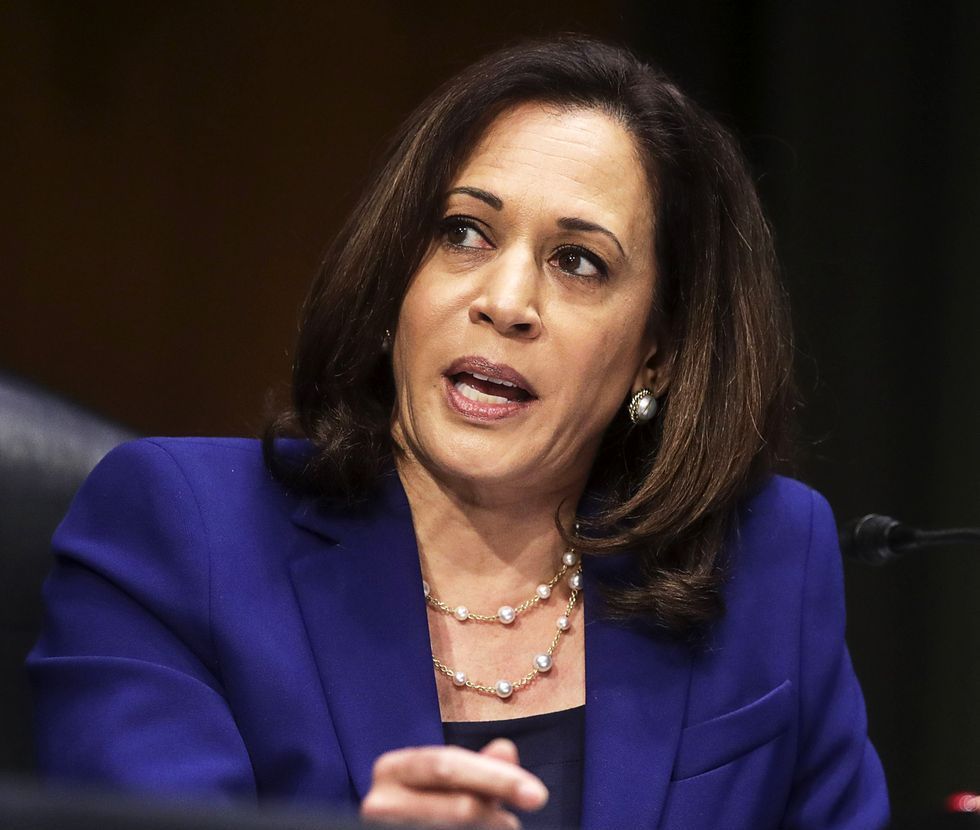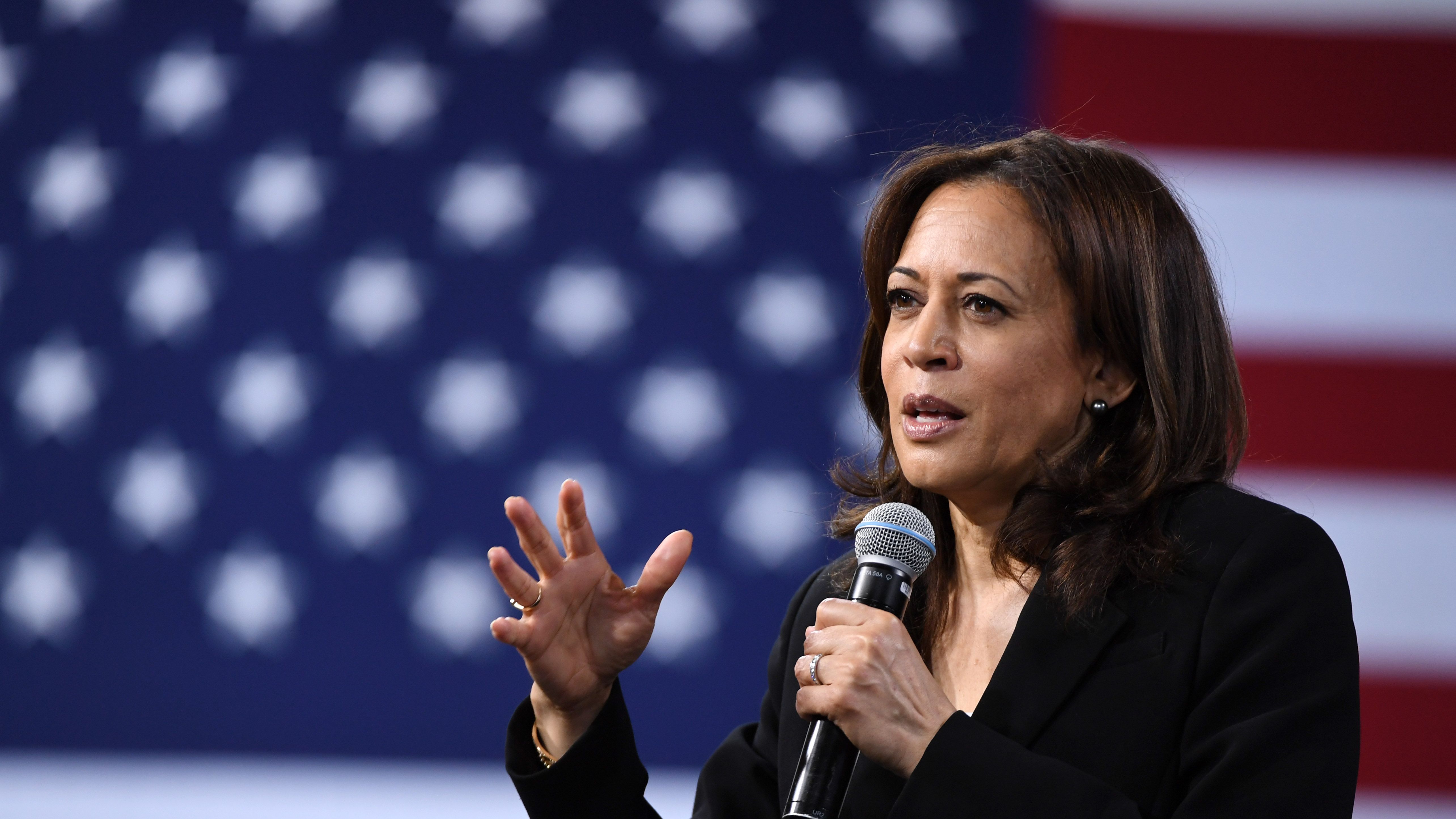Where Kamala Harris Stands on Healthcare
The VP nominee and Joe Biden have clashed on the subject.

It might not seem it at first glance, but healthcare is a hot-button issue for elections—and it impacts even more people than you'd think. Massive healthcare disparities exist across the board for Black, Hispanic, Native American, and Pacific Islander communities in particular, not to mention institutional bias within the medical community. Women's healthcare rights are also very much at stake in 2020, considering the priorities of the current administration.
But healthcare also an issue that sees a lot of variety across Democratic candidates, ranging from a single-payer healthcare system (meaning that all health insurance is covered through the government, and everyone is covered) to a more hybrid approach that doesn't exclude private healthcare companies (half of the American population is currently enrolled in private plans).
At least according to her stance in the past, Harris favors the latter, hybrid approach—and it's quite different from what Biden has proposed. What is her take, and how may her stance have shifted?
As a presidential candidate, Harris proposed Medicare for All.
The issue is personal for Harris. Citing her mother's terminal cancer diagnosis, she's said that her interest in improving coverage comes from that relationship: "She got sick before the Affordable Care Act became law, back when it was still legal for health insurance companies to deny coverage for pre-existing conditions. I remember thanking God she had Medicare...As I continue the battle for a better health care system, I do so in her name."
The details can vary, but the basics of Medicare for All would be to vastly expand the government's role to include everyone's healthcare needs. By making Medicare more robust, the program would work to reduce costs for the insured, increase coverage to include those who were previously excluded, and expand upon existing plans in an effort to allow people to keep their existing doctors.
But unlike other, more extreme proposals, Harris' plan would subsequently allow private insurers to participate—in a similar way to the current framework of Medicare Advantage. “Essentially, we would allow private insurance to offer a plan in the Medicare system, but they will be subject to strict requirements to ensure it lowers costs and expands services,” she explained.
My Medicare for All plan will provide health care for every American, while protecting families making less than $100,000 from higher taxes. We must act now. pic.twitter.com/fWyls2CSMxJuly 29, 2019
The candidates' stances have had to incorporate what governmental influence would do to the private market, and Harris didn't favor a plan that would abolish private insurance. She had initially expressed support for something along that lines, but then changed that stance; she said her perspective on the subject had evolved. She's also proposed a decade-long "phase-in" period for this new Medicare plan to be put in place.
Get exclusive access to fashion and beauty trends, hot-off-the-press celebrity news, and more.
When they were both presidential candidates, Biden and Harris clashed over healthcare—she said his plan would leave Americans without coverage, he dismissed her plan as nonsensical.
Biden's take on healthcare is vastly different.
Biden worked with President Obama on the Affordable Care Act (ACA), and thus his plans for healthcare would be to expand upon and further develop the ACA, while protecting it from current attacks. People could choose a public plan (i.e., they wouldn't be mandated to join Medicare) and the government would provide tax benefits. Per The Washington Post: "It would also cap every American’s health-care premiums at 8.5 percent of their income and effectively lower deductibles and co-payments. Biden recently said he also wants to lower the Medicare enrollment age by five years, to 60."
Health care is personal to me. And as president, I'll do everything I can to make sure every American has access to the care they need. pic.twitter.com/Rmwsmx54KWJuly 12, 2020
The plan would separately take on exorbitant pharmaceutical pricing, which is another hot-button issue that hasn't had any resolution. Multiple bills have been debated in Congress, but the House's recently passed bill is heavily opposed by Republicans.
Harris wasn't the only one to criticize Biden on his plan, which may still exclude many from coverage. But now that the two are running mates, they may need to come up with a cohesive strategy that incorporates both of their stances (or, Harris may have to adopt a more moderate approach).
Harris has proposed several healthcare solutions for COVID-19.
Harris has been active in proposing economic relief towards individuals, families, and businesses during the pandemic, and healthcare is no exception. She's proposed the COVID-19 Racial and Ethnic Disparities Task Force Act, which, among other things, would be designed to address barriers to equitable health care and medical coverage. This is one of the area's in which she's pledged to act towards racial justice—and it may be another area in which her stance impacts the Biden-Harris platform.
RELATED STORIES



Katherine’s a contributing syndications editor at Marie Claire who covers fashion, culture, and lifestyle. In her role, she writes stories that are syndicated by MSN and other outlets. She’s been a full-time freelancer for over a decade and has had roles with Cosmopolitan (where she covered lifestyle, culture, and fashion SEO content) and Bustle (where she was their movies and culture writer). She has bylines in New York Times, Parents, InStyle, Refinery29, and elsewhere. Her work has also been syndicated by ELLE, Harper’s Bazaar, Seventeen, Good Housekeeping, and Women’s Health, among others. In addition to her stories reaching millions of readers, content she's written and edited has qualified for a Bell Ringer Award and received a Communicator Award.
Katherine has a BA in English and art history from the University of Notre Dame and an MA in art business from the Sotheby's Institute of Art (with a focus on marketing/communications). She covers a wide breadth of topics: she's written about how to find the very best petite jeans, how sustainable travel has found its footing on Instagram, and what it's like to be a professional advice-giver in the modern world. Her personal essays have run the gamut from learning to dress as a queer woman to navigating food allergies as a mom. She also has deep knowledge of SEO/EATT, affiliate revenue, commerce, and social media; she regularly edits the work of other writers. She speaks at writing-related events and podcasts about freelancing and journalism, mentors students and other new writers, and consults on coursework. Currently, Katherine lives in Boston with her husband and two kids, and you can follow her on Instagram. If you're wondering about her last name, it’s “I go to dinner,” not “Her huge ego,” but she responds to both.